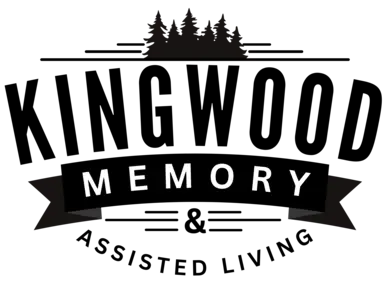Understanding Dementia in Younger Adults: Challenges, Impacts, and Perspectives
Introduction
Dementia is often associated with older age, but it can also affect younger adults, albeit less frequently. While the prevalence of dementia in younger populations is lower compared to older adults, it presents unique challenges and implications for individuals, families, and healthcare systems. This exploration delves into the complexities of dementia in younger adults, including its causes, clinical manifestations, diagnostic considerations, and psychosocial impacts.
Defining Dementia in Younger Adults
Dementia is a syndrome characterized by progressive decline in cognitive function that interferes with daily activities. In younger adults, dementia is typically defined as onset before the age of 65, although the exact age cutoff may vary in different studies and clinical settings. Young-onset dementia (YOD) encompasses a diverse spectrum of neurodegenerative, vascular, metabolic, autoimmune, infectious, and genetic etiologies that can manifest with cognitive impairment, behavioral changes, and functional decline.
Epidemiology and Prevalence
While Alzheimer’s disease remains the most common cause of dementia in younger adults, accounting for approximately 50-60% of cases, other etiologies such as frontotemporal dementia, vascular dementia, Lewy body dementia, early-onset familial Alzheimer’s disease, Huntington’s disease, and rare genetic disorders (e.g., Down syndrome, Creutzfeldt-Jakob disease) are also observed. The prevalence of YOD varies across studies, with estimates ranging from 5% to 9% of all dementia cases.
Clinical Features and Diagnostic Challenges
Dementia in younger adults often presents with atypical clinical features compared to late-onset dementia. Behavioral and psychiatric symptoms, including depression, anxiety, irritability, apathy, impulsivity, aggression, hallucinations, and psychosis, may predominate early in the disease course. Memory impairment, a hallmark feature of Alzheimer’s disease in older adults, may be less prominent initially, with deficits in executive function, language, visuospatial skills, and praxis being more common.
Impact on Individuals and Families
The diagnosis of dementia in younger adults can have profound physical, emotional, social, and financial consequences for individuals and their families. Younger adults with dementia may experience disruptions in employment, relationships, and independence, leading to feelings of loss, grief, stigma, and isolation. Caregivers, often spouses, children, or siblings, may face significant burdens in providing support and navigating healthcare systems, compounded by limited awareness, resources, and specialized services for YOD.
Psychosocial and Vocational Rehabilitation
Psychosocial interventions and vocational rehabilitation programs play a crucial role in addressing the unique needs of younger adults with dementia and their families. Cognitive rehabilitation, psychoeducation, counseling, support groups, respite care, and advance care planning can enhance coping skills, promote emotional well-being, and facilitate adjustment to life changes associated with YOD. Vocational rehabilitation services, including job coaching, skills training, workplace accommodations, and disability benefits, can help individuals with dementia maintain employment, financial stability, and social engagement for as long as possible.
Promoting Brain Health and Early Intervention
While there is currently no cure for dementia, early detection and intervention are critical for optimizing outcomes and quality of life in younger adults. Lifestyle modifications, including physical exercise, cognitive stimulation, social engagement, healthy diet, sleep hygiene, stress management, and risk factor reduction (e.g., smoking cessation, blood pressure control, diabetes management), may help delay disease progression and mitigate cognitive decline. Emerging pharmacological and non-pharmacological therapies, including disease-modifying drugs, immunotherapies, and precision medicine approaches, hold promise for targeted treatment and personalized care in YOD.
Research and Advocacy
Advancing research into the pathogenesis, biomarkers, diagnostic criteria, treatment modalities, and psychosocial support strategies for YOD is essential for addressing the unmet needs of affected individuals and families. Collaborative efforts between clinicians, researchers, advocacy organizations, policymakers, and industry partners are needed to raise awareness, improve access to care, promote early diagnosis, and enhance support services for YOD. By advocating for inclusive policies, funding initiatives, and public education campaigns, we can foster a more dementia-friendly society that recognizes and supports individuals of all ages affected by this challenging condition.
Conclusion
In conclusion, dementia in younger adults presents unique clinical, psychosocial, and ethical challenges that require comprehensive and multidisciplinary approaches to diagnosis, management, and support. By raising awareness, promoting early detection, facilitating access to specialized care, and advocating for policies that address the needs of younger adults with dementia and their families, we can enhance quality of life and promote dignity and autonomy for all individuals affected by this devastating condition. Together, we can strive towards a future where age is not a barrier to understanding, empathy, and support for those living with dementia.





